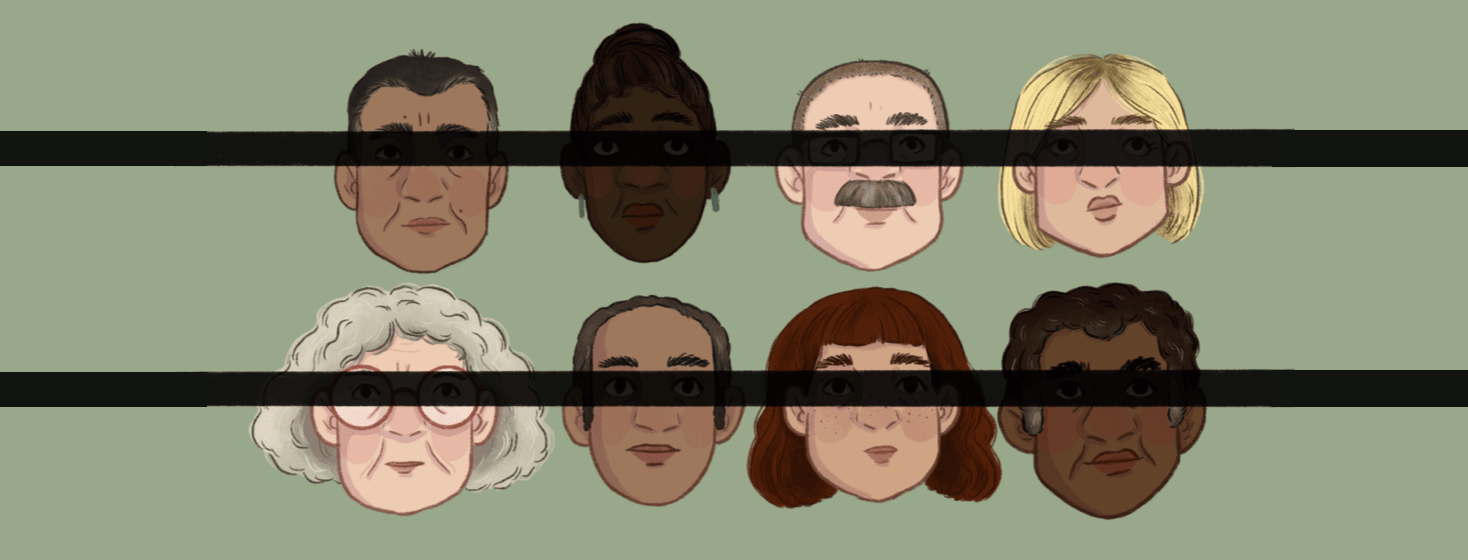Many Faces of Denial
In my experience, denial comes with many faces. I saw quite a few of these as I walked through my Poppop's Alzheimer's diagnosis with him and continue to see these forms as I march on in his memory as an advocate.
Let's go through some of them.
Robert
Robert sees his loved one daily, but he has been annoyed by lapses of memory and odd behavior lately. He will not allow the idea that something is, in fact, wrong with his loved one to cross his mind.
Instead, he is focused on putting one foot in front of the other and maintaining his status quo. When someone attempts to discuss something being out of the ordinary, he shuts down the conversation.
Sharon
Sharon has a complete disregard for the situation at hand. She neither alters her lifestyle to make time for her loved one, recently diagnosed with dementia, nor does she offer assistance within the confines of her lifestyle. Sharon neither talks about the "A" word nor does she regularly converse with family to be even remotely available for her loved one and her loved one's support system. She simply disappears.
William
William also doesn't curtail his lifestyle based on the challenges of his loved ones. In fact, he is vicious in pursuing his lifestyle. He will either ignore the situation at hand, not acknowledge his loved one or aggressively adjust the position to his will regardless of what's in the best interest of his loved one.
He steamrolls onward, making no accommodations for those around him, neither a patient nor a caregiver.
Thomas
Thomas's denial is selective. When he feels capable of showing up for his loved one, talking to him, bathing him, and participating in family gatherings - he does. When he does not, he doesn't show up.
The fact that there may come a day when his loved one cannot merely be reminded of who he is - is something Thomas only allows himself to think about every once in a while. When the feeling gets too deep, he buries it with the force of a dog hiding his favorite bone.
Patricia
Patricia holds on to various changes throughout dementia. As soon as she adjusts to a level, her loved one leaves it, and she is reeling from the effort of moving to the next one.
Lately, she finds herself arguing with her siblings, insistent that things will change for the better. Patricia clings to hope that things can stay the same, that she doesn't need to prepare for the next stage because it will never come.
Seem familiar?
Do any of these people feel familiar to you? Perhaps you choose to inhabit one or more of these people's denying ways from time to time, and that's just fine. We are all imperfect humans who do what they can to get by.
The problem becomes when you sit in denial for too long. Keep an eye on those signs that you can no longer sit there; question whether you are making a choice out of fear. And, if so, how you might be able to face that fear and show up.
Your loved one, whether they mix you up with your sibling or know your face or are able to talk to you or not needs you to tell fear that it won't win, just as they are doing while walking the path of Alzheimer's.

Join the conversation